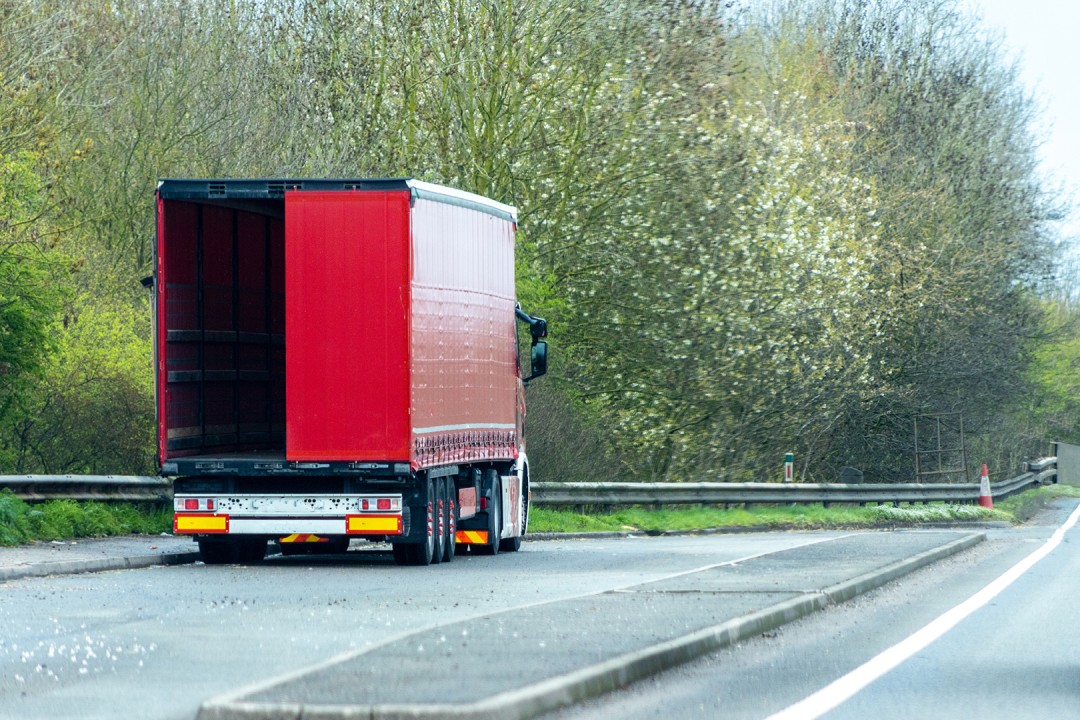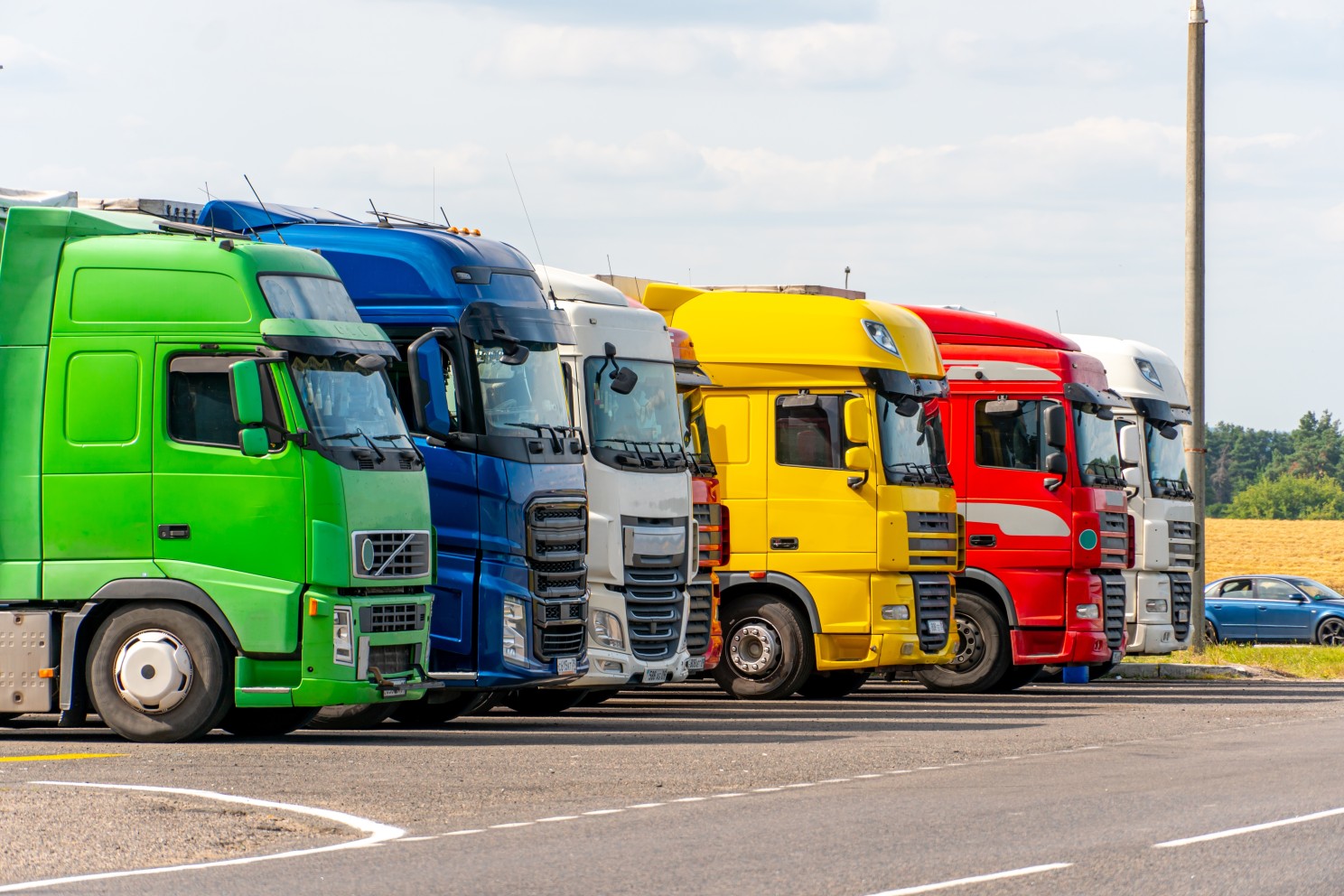
Susie Jones
Ziehen Autofahrer Raststätten den Tankstellen vor?
Erstellt: 19.08.2024
•
Aktualisiert: 19.08.2024
Im Jahr 2022 wurden im Vereinigten Königreich über 5.000 Fälle von Frachtkriminalität gemeldet, die einen Schaden von rund 66 Millionen Pfund verursachten. Die zunehmende Frachtkriminalität stellt eine kritische Bedrohung für Lieferketten, Unternehmen und Verbraucher dar und bereitet den Beschäftigten im Transportgewerbe große Sorgen.
Einem von der Polizei von Cambridgeshire veröffentlichten Bericht zufolge ereignen sich [46 %] (https://www.cambstimes.co.uk/news/23740469.cambridgeshire-police-record-380-per-cent-rise-hgv-crimes/) aller Ladungsdiebstähle auf Straßen und Rastplätzen, 27 % an Tankstellen. Trotzdem zeigt das soziale Zuhören, dass viele Autofahrer aus verschiedenen Gründen weiterhin auf Rastplätzen parken.
Die Probleme beim Parken auf einem Rastplatz
Für Autofahrer ist das Parken über Nacht auf einem Rastplatz oft die einfachste und wirtschaftlichste Lösung. Sie hat jedoch mehrere Nachteile, die sich negativ auf die psychische Gesundheit und die Sicherheit der Fahrer auswirken können.
Einrichtungen - Die Fahrer benötigen mehr Einrichtungen wie Toiletten, Duschen und Lebensmittel. Ein Mangel an sauberen Einrichtungen kann das Unbehagen erhöhen und sich negativ auf Schlaf, Konzentration und psychische Gesundheit auswirken.
Fahrersicherheit - Das Parken auf Rastplätzen stellt ein zusätzliches Risiko für die Fahrersicherheit dar. Eine Studie des [AA] (https://www.transport-network.co.uk/Highways-AA-warns-of-danger-lurking-in-lay-bys/7695#:~:text=The%20Too%20close%20for%20comfort,the%20vehicles%20that%20are%20hit.) ergab, dass sich zwei Drittel der tödlichen Unfälle mit stehenden Fahrzeugen auf einer zweispurigen Straße in Haltebuchten ereigneten - mehr als die Hälfte der betroffenen Fahrzeuge waren Lastkraftwagen.
Ladungsdiebstahl - Die Branche verzeichnete im Zeitraum Juni-Juli 2023 einen Anstieg von [380 %] (https://www.cambstimes.co.uk/news/23740469.cambridgeshire-police-record-380-per-cent-rise-hgv-crimes/) bei Ladungsdiebstählen, was den Bedarf an sicheren Parkplätzen verdeutlicht. Gelegenheitsdiebe, die es auf Rastplätze abgesehen haben, riskieren, dass die Fahrer ihre Ladung verlieren, und die Flotten riskieren Millionen von Pfund.
Warum Autofahrer auf Rastplätzen parken
Trotz der Risiken ergab eine über [Facebook] (https://www.facebook.com/photo/?fbid=768988658604142&set=a.482170237285987&locale=en_GB) durchgeführte Befragung, dass 70 % der Autofahrer aus verschiedenen Gründen weniger geneigt sind, einen Lkw-Parkplatz einem Rastplatz vorzuziehen:
Sicherheit
Aus Rückmeldungen in den sozialen Medien geht hervor, dass 43 % der Lkw-Fahrer wegen der fehlenden Sicherheitsmaßnahmen nicht an einer Raststätte oder Tankstelle parken.
"Ich parke nur auf Rastplätzen oder in Industriegebieten. Wenn ich in Raststätten geparkt habe, hat man mir die Vorhänge abgeschnitten", sagt Lkw-Fahrer Luke.
Die Sicherheit von Lkw-Haltestellen im Vereinigten Königreich ist ein heißes Diskussionsthema in der Speditionsbranche. Die Fahrer fordern von der Regierung mehr Unterstützung für die Bereitstellung zusätzlicher Sicherheitseinrichtungen. Aus früheren Rückmeldungen geht hervor, dass die Fahrer die [Lkw-Abgabe] (https://motortransport.co.uk/industry-news/drivers-want-hgv-levy-funds-spent-on-truck-stops/17658.article) in sicherere, sanitäre und erschwingliche Parkplätze investiert sehen wollen.
In den sozialen Medien gaben 59 % der Lkw-Fahrer an, dass es im Vereinigten Königreich im Vergleich zu Europa nicht genügend sichere Lkw-Stellplätze gibt. Eine Meinung, die durch das Feedback der [SNAP's Truck Park Tour] (https://snapacc.com/truckpark-tour-2023/) bestätigt wird, bei der 31 % der europäischen Fahrer angaben, dass sie am meisten vom Zugang zu exklusiven, sicheren SNAP-Standorten profitierten. Die Sicherheitsorganisation TAPA ist in Europa weithin anerkannt - viele Standorte verfügen über Zertifizierungen der Stufen 1, 2 oder 3.
Im Gegensatz dazu gibt es im Vereinigten Königreich nur zwei Standorte, die eine TAPA-Zertifizierung haben - mit SNAP PSR Level 3 geschulten autorisierten Auditoren, die die Standorte akkreditieren. Formula Services und The Red Lion verfügen beide über eine Stufe-3-Zertifizierung. Bei The Red Lion wurde ein Verstoß gemeldet, bei Formula Services keiner, obwohl der Standort in einem Gebiet mit hoher Kriminalität liegt.
Markus Prinz, Senior Manager of Standards, Training, and Certification bei TAPA, erklärt: "Wir unterstützen alle Aktivitäten zur Gewährleistung einer effizienten und sicheren Parkinfrastruktur für Lkw und zur Verbesserung der Sicherheit für Lkw-Fahrer, Fahrzeuge und Fracht. Durch die Bereitstellung eines offenen Ökosystems für die technische und wirtschaftliche Optimierung von sicheren Lkw-Parkplätzen glauben wir, dass der Übergang zu sicheren Lkw-Parkplätzen gefördert werden kann."
Abneigung des Unternehmens
30 % der Fahrer gaben an, dass ihre Fuhrparkunternehmen nicht bereit sind, für Lkw-Haltestellen oder Tankstellen zu zahlen. Ein Fahrer erklärte:
"Leider zahlen immer weniger Unternehmen für das Parken über Nacht, die Einrichtungen halten sich mit Mühe und Not über Wasser, bauen Personal ab, um ihre Rechnungen zu bezahlen, und es kommen immer weniger Parkplätze hinzu."
Lkw-Haltestellen mit maximaler Kapazität
"Man kann erkennen, welche Haltestellen gesichert sind, da sie um 18 Uhr voll sind.
70 % der Fahrer äußerten ihre Frustration darüber, dass sichere Lkw-Haltestellen maximal ausgelastet sind und ihnen keine andere Wahl bleibt, als auf einem Rastplatz zu parken. Die Rückmeldungen von der Truck Park Tour ergaben ein ähnliches Bild - viele äußerten ihre Besorgnis darüber, dass die Parkplätze im Vereinigten Königreich bereits vor der Ankunft voll sind.
Daten aus TfL's 2022 lorry parking survey besagen, dass trotz einer 12%igen Erhöhung der Kapazität vor Ort im Zeitraum 2017-2022 diese nicht ausreicht, um den 21%igen Anstieg der Fahrzeuge im gleichen Zeitraum zu bewältigen.

Reduzierung des Parkens über Nacht auf Rastplätzen
Staatliche Finanzierung
18 % der Autofahrer wünschten sich mehr Mittel von der Regierung zur Unterstützung von Sicherheitseinrichtungen. Im September 2023 vergab das Verkehrsministerium [8 Millionen Pfund an 39 straßenseitige Einrichtungen] (https://www.gov.uk/government/news/better-facilities-for-lorry-drivers-as-winners-of-8-million-funding-revealed) in ganz England zur Verbesserung der Einrichtungen und der Sicherheit. Das Zugangs- und Sicherheitsteam von SNAP hat damit begonnen, die Unternehmen, die sich die Mittel gesichert haben, bei der Umsetzung ihrer Verbesserungen zu unterstützen. Weitere Mittel in Höhe von bis zu 100 Millionen Pfund stehen bis 2025 im Rahmen des Match-Funding-Programms der Regierung zur Verfügung.
Sicherheitseinrichtungen
Um ein sicheres Umfeld für Lkw-Fahrer zu schaffen, können Raststätten in robuste Sicherheitsanlagen investieren - Produkte wie CCTV, ANPR, Gegensprechanlagen, Schranken und Kioske erhöhen die Sicherheit auf dem Gelände und schrecken vor kriminellen Aktivitäten ab. [SNAP Access & Security (https://snapaccessandsecurity.com/) kombiniert maßgeschneiderte Sicherheitsprodukte und Marktkenntnis, um Personen, Fahrzeuge und Inhalte von Raststätten zu schützen.
Dürfen Lkw-Fahrer im Vereinigten Königreich am Straßenrand schlafen?
Seit dem 1. November 2017 hat die DVSA [neue Regeln] (https://www.rha.uk.net/news/news-blogs-and-press-releases/press-releases/detail/rha-warning-over-ban-on-drivers-sleeping-in-lorry-cabs) und Vorschriften für Fahrer eingeführt, die an Orten wie Wohngebieten und Rastplätzen ruhen. Fahrer können mit einer Geldstrafe von bis zu 300 Pfund belegt werden, wenn sie ihre Pause auf einem Rastplatz oder am Straßenrand verbringen.
Wie bleiben Lkw-Fahrer während der Fahrt wach?
Lkw-Fahrer müssen zu ihrer eigenen Sicherheit und der aller anderen Verkehrsteilnehmer die Pausenvorschriften des Fahrtenschreibers einhalten. Der Fahrtenschreiber soll Übermüdung verhindern und sicherstellen, dass sich Fahrer und Arbeitgeber an die Regeln halten.
Trotzdem ist [die Vermeidung von Langeweile und Müdigkeit auf der Straße] (https://www.linkedin.com/pulse/you-bored-road-snap-account%3FtrackingId=aJQJX0v5Sj%252BTVlKI%252FgRkbA%253D%253D/?trackingId=aJQJX0v5Sj%2BTVlKI%2FgRkbA%3D%3D) für viele Fahrer eine Herausforderung und kann ihr Wohlbefinden beeinträchtigen. Die meisten Fahrer bevorzugen es, während der Fahrt Musik und Podcasts zu hören, und profitieren von der sozialen Interaktion mit anderen Fahrern an Raststätten und Tankstellen.
Dürfen Lkw-Fahrer im Vereinigten Königreich Fahrgäste mitnehmen?
Der durchschnittliche Lkw-Fahrer verbringt etwa 12 Stunden pro Tag hinter dem Steuer. Um der Einsamkeit und Langeweile entgegenzuwirken, können Fahrer Fahrgäste mitnehmen, wenn sie bestimmte, von der FMSCA festgelegte Vorschriften einhalten. Die Fahrer müssen eine schriftliche Genehmigung ihres Unternehmens einholen, indem sie einen Antrag auf Fahrgastbeförderung einreichen - in diesem Antrag müssen die Dauer der Fahrt und die Daten angegeben werden.
Die allgemeinen Anforderungen sind wie folgt: - Die Passagiere dürfen nicht schwanger sein
Sie dürfen nicht unter schweren oder chronischen gesundheitlichen Problemen leiden
Sie müssen mindestens zehn Jahre alt sein.
Eine Krankenversicherung ist erforderlich.


